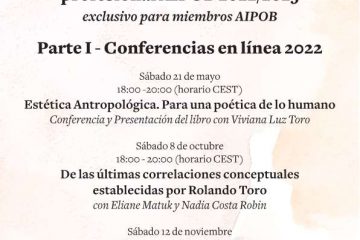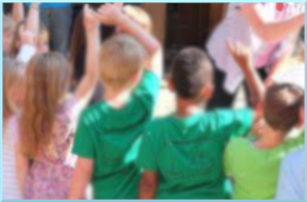

Historical Review – Author: Claudete Sant’Anna Something pushes us, from the immemorial past, without our being aware of it, to fulfil our vocation; a voice inspires us to connect with the world. I write this thinking of the secret forces that led Rolando Toro Araneda through the years to concentrate his interest in education and in the destiny of humanity. Rolando Toro came from a family of educators: his grandfather was a professor in the city of Cañete (Chile), and his name still appears at the entrance to the school where he taught, “Escuela Leoncio Araneda”; his own mother, seven of his aunts and two of his brothers were professors. Thus in the genealogy of his life the memory of this love for humanity, for the human being, circulates like a persistent sound. In 1940 he finished his studies as a primary school teacher in the Josè Abelardo Nuñez de Santiago School. His career as a teacher of primary education lasted about sixteen years, and he practiced in Talcahuano, Valparaíso, Pocuro and Santiago. In each of the schools in which he worked he became aware of aspects that were missing in traditional education. In Talcahuano he dedicated himself in particular to bringing children closer to nature, making frequent trips to the sea with them; later he used themes derived from these trips in their learning path. In Pocuro (Los Andes), he began an intense artistic creative activity with children, especially through painting. The colourful landscape of Los Andes, with all the shades of hues produced by variations in sunlight, represented real pictorial techniques. The themes were rural situations: “ducks swimming in the lake”, “a little girl with a baby goat in her arms”, “a pregnant cow”, “horses grazing on the prairie”, etc. The observation of plants, rocks, animals and scenes of peasants working gave the childish paintings a lot of vitality and beauty. The poet Ludwig Zeller brought a collection of these paintings to Santiago, to be exhibited in the Exhibition hall of the Ministry of Education, obtaining an unexpected result in the pedagogical and artistic environment. The works were requested for exhibition in the Het Palet in Holland, at the Royal Institute of London and at the National Children’s Centre in Paris.  In 1954 he created the “Festival del Bambino” in Santiago, where the socio-economic and health conditions of the Chilean children were examined. Six thousand children from all over the country participated in the first Festival. Children’s orchestras, painting exhibitions, pottery and pedagogical games were presented on the patio of the Central House of the University of Chile, and a large children’s parade was held in the centre of Santiago. During the period that he practiced in Valparaiso he proposed a new methodology of learning to read and write. Starting from these experiences he elaborated a syllabus to learn to read without effort. Thanks to his revolutionary conceptions on education, the Dean of the University of Concepción, Rolando Merino, invited him to hold a series of lectures during the course of Education at the university. Rolando Toro’s pedagogical concept was centred on new forms of “vivenciale” learning, starting from affectivity and the pleasure of living. Subjects of an intellectual nature were not excluded from this proposal; but it was about integrating intelligence with affectivity and mutual respect. The incorporation of an experimental science and technology teaching was also proposed. In these circumstances Rolando Merino invited him to create a psychology lab in the School of Education of the University of Concepción. Rolando Toro formalized his psychology studies in the School of Psychology of the Pedagogical Institute of the University of Chile, which ended in 1964. At that time he met Dr. Claudio Naranjo, with whom he established a profound friendship; Thanks to his help, Rolando Toro entered the Centre for Studies in Medical Anthropology of the School of Medicine of the University of Chile, under the direction of Dr. Francisco Hoffman. This study centre aimed to humanize medicine. In the Centre for Studies in Medical Anthropology, Rolando Toro was appointed adjunct tenure professor, conducting seminars in medical anthropology, philosophy and psychology. From here his interest in education extended to secondary teaching and psychotherapy. Among the various activities related to his research he had the privilege of applying different therapeutic systems with mental patients. On this occasion he made his first therapeutic dance tests with the patients of the Psychiatric Hospital. Starting from the results obtained with these experiences, he adapted his therapeutic system to be applied to other clinical situations and also to normal people. The system of exercises and music used was called “Psychodanza”. Thanks to the results obtained and the prestige that Psychodanza acquired, Rolando Toro was appointed Professor of Psychology of Art and Psychology of Expression at the Institute of Aesthetics of the Pontifical Catholic University of Santiago. Later, Rolando Toro changed the name Psychodanza to “Biodanza”, “dance of life”, and its diffusion slowly reached a worldwide dimension. Therefore we can affirm that Biodanza had direct antecedents in the experiences of Rolando Toro in the educational field, placing the emphasis in the emotional restructuring of people and in the Biocentric principle. Following the military coup in Chile, Rolando Toro self-exiled in Argentina, Brazil and Italy, for a period of twenty-four years. Biodanza has spread in these countries and has also been applied in the educational field. This educational model took various names, such as “School Universe”, “Holistic Education” and “Wild Education”. Finally Rolando Toro gave it the name ” Biocentric Education” on the suggestion of the Brazilian pedagogue Ruth Cavalcante, due to the fact that this educational model is based on the Biocentric principle described since its first educational proposals.
In 1954 he created the “Festival del Bambino” in Santiago, where the socio-economic and health conditions of the Chilean children were examined. Six thousand children from all over the country participated in the first Festival. Children’s orchestras, painting exhibitions, pottery and pedagogical games were presented on the patio of the Central House of the University of Chile, and a large children’s parade was held in the centre of Santiago. During the period that he practiced in Valparaiso he proposed a new methodology of learning to read and write. Starting from these experiences he elaborated a syllabus to learn to read without effort. Thanks to his revolutionary conceptions on education, the Dean of the University of Concepción, Rolando Merino, invited him to hold a series of lectures during the course of Education at the university. Rolando Toro’s pedagogical concept was centred on new forms of “vivenciale” learning, starting from affectivity and the pleasure of living. Subjects of an intellectual nature were not excluded from this proposal; but it was about integrating intelligence with affectivity and mutual respect. The incorporation of an experimental science and technology teaching was also proposed. In these circumstances Rolando Merino invited him to create a psychology lab in the School of Education of the University of Concepción. Rolando Toro formalized his psychology studies in the School of Psychology of the Pedagogical Institute of the University of Chile, which ended in 1964. At that time he met Dr. Claudio Naranjo, with whom he established a profound friendship; Thanks to his help, Rolando Toro entered the Centre for Studies in Medical Anthropology of the School of Medicine of the University of Chile, under the direction of Dr. Francisco Hoffman. This study centre aimed to humanize medicine. In the Centre for Studies in Medical Anthropology, Rolando Toro was appointed adjunct tenure professor, conducting seminars in medical anthropology, philosophy and psychology. From here his interest in education extended to secondary teaching and psychotherapy. Among the various activities related to his research he had the privilege of applying different therapeutic systems with mental patients. On this occasion he made his first therapeutic dance tests with the patients of the Psychiatric Hospital. Starting from the results obtained with these experiences, he adapted his therapeutic system to be applied to other clinical situations and also to normal people. The system of exercises and music used was called “Psychodanza”. Thanks to the results obtained and the prestige that Psychodanza acquired, Rolando Toro was appointed Professor of Psychology of Art and Psychology of Expression at the Institute of Aesthetics of the Pontifical Catholic University of Santiago. Later, Rolando Toro changed the name Psychodanza to “Biodanza”, “dance of life”, and its diffusion slowly reached a worldwide dimension. Therefore we can affirm that Biodanza had direct antecedents in the experiences of Rolando Toro in the educational field, placing the emphasis in the emotional restructuring of people and in the Biocentric principle. Following the military coup in Chile, Rolando Toro self-exiled in Argentina, Brazil and Italy, for a period of twenty-four years. Biodanza has spread in these countries and has also been applied in the educational field. This educational model took various names, such as “School Universe”, “Holistic Education” and “Wild Education”. Finally Rolando Toro gave it the name ” Biocentric Education” on the suggestion of the Brazilian pedagogue Ruth Cavalcante, due to the fact that this educational model is based on the Biocentric principle described since its first educational proposals.
|
Important Official Recognition
Considering Rolando Toro’s great contribution of to our world, especially in the category “Contagion” of positive emotions, seeing that thanks to the experience of Biodanza, many Chileans have begun to be happier people, and infect other people with happiness, transforming this country into a better place to live. So, we want to publicly thank Rolando Toro for his contribution in building healthy and better relations in the quality of life in Chile. Awaiting your answer and looking forward to having you at this ceremony. Thank you. Sincerely Dr. Daniel Martinez Aldunate [Director of the I Meeting of Health and Happiness Reports] E.U. Aixa Contreras Mejias [UC Health Director, Pontifical Catholic University]. FOUNT: SCUOLATORO.COM |



0 Comments